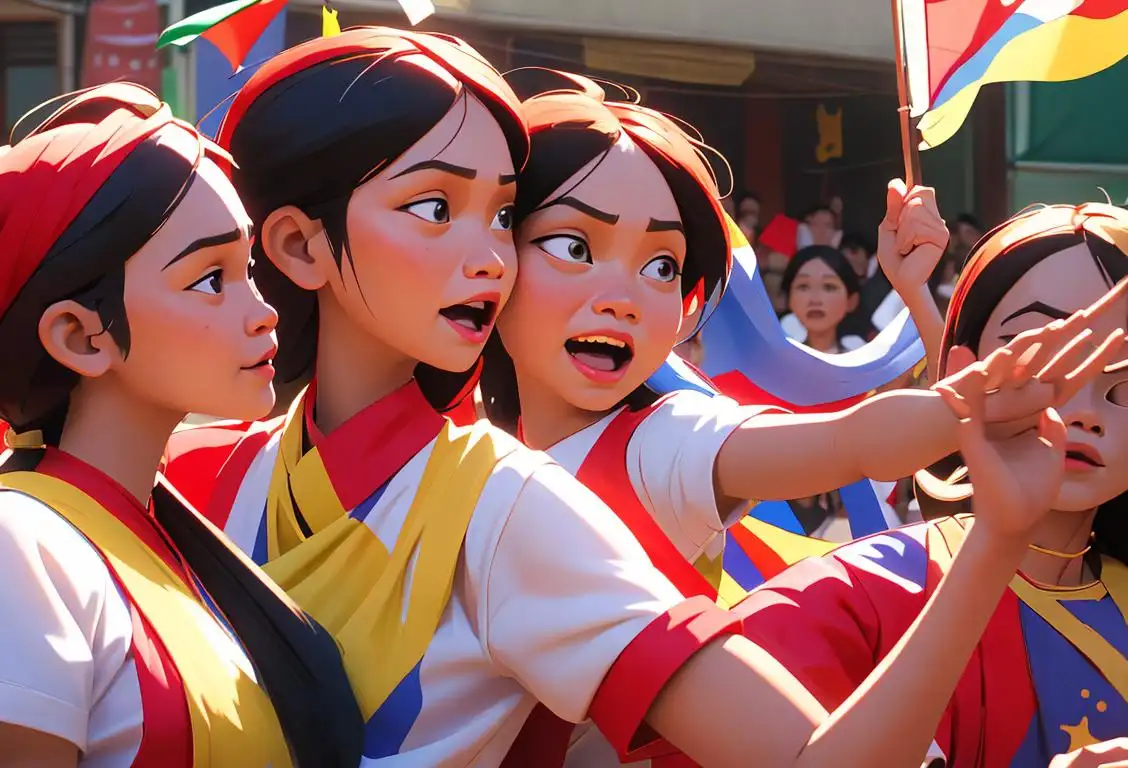National Bonifacio Day

Welcome to the wild and wonderful world of National Bonifacio Day! This day is all about celebrating a Filipino hero, Andres Bonifacio, and his heroic contributions to the Philippines. Get ready for an adventure through history, culture, and maybe even some fun surprises along the way. So, fasten your seatbelts and let's dive into this memorable day!
When is Bonifacio Day?
It's national bonifacio day on the 30th November.
The Heroic Journey of Andres Bonifacio
On this special day, the spotlight shines on one of the most influential figures in Philippine history: Andres Bonifacio. He was a revolutionary leader and a key figure in the struggle for independence against Spanish colonial rule in the late 19th century.
Known as the Father of the Philippine Revolution, Bonifacio's fearless spirit and unwavering commitment to freedom inspired countless others to join the fight for independence. He founded the Kataas-taasan, Kagalanggalangang Katipunan ng mga Anak ng Bayan (KKK), a secret society dedicated to liberating the Philippines from the clutches of Spanish tyranny.
Bonifacio's bravery and determination in the face of adversity galvanized the Filipino people, igniting a passion for freedom that would shape the course of Philippine history. His leadership and revolutionary ideals continue to serve as a driving force for the Filipino nation.
History behind the term 'Bonifacio'
1887
Birth of Andrés Bonifacio
Andrés Bonifacio, a Filipino nationalist and revolutionary, was born on November 30, 1863, in Tondo, Manila, Philippines. He is known as a key figure in the Philippine Revolution against Spanish colonization.
1892
Founding of the Katipunan
In 1892, Andrés Bonifacio co-founded the Kataas-taasang, Kagalanggalangang Katipunan ng mga Anak ng Bayan, also known as the Katipunan. The Katipunan was a secret society that aimed to achieve Philippine independence from Spanish rule through armed revolt.
1896
The Cry of Balintawak
On August 23, 1896, Andrés Bonifacio led a gathering at Balintawak, now known as Caloocan City, to tear up their cedulas (residence certificates) in an act of defiance against Spanish rule. This event, known as the Cry of Balintawak, marked the beginning of the Philippine Revolution.
1897
Execution of Andrés Bonifacio
On May 10, 1897, Andrés Bonifacio and his brother Procopio were captured by members of the Magdalo faction during the Tejeros Convention. In a controversial turn of events, Andrés Bonifacio was tried and executed on the same day in Maragondon, Cavite. His death deeply impacted the Philippine Revolution and solidified his place in history as a national hero.
1898
Philippine Independence from Spain
In 1898, following the defeat of Spanish forces in the Battle of Manila Bay during the Spanish-American War, the Philippines declared independence from Spanish colonial rule. While Andrés Bonifacio did not live to see this moment, his influence and sacrifice played a significant role in the eventual liberation of the Philippines.
Did you know?
Did you know that National Bonifacio Day is celebrated on November 30th to commemorate the birth anniversary of Andres Bonifacio? It's a day to honor his significant contributions to the Philippine struggle for independence and remember his heroic legacy. So, let's raise our flags and pay tribute to this remarkable Filipino hero!Tagged
awareness rememberanceFirst identified
30th November 2015Most mentioned on
30th November 2017Total mentions
208Other days
Voters Day
Unemployed Day
Suicide Prevention Day
Cancer Survivors Day
Memorial Day
Bestfriends Day
Heroes Day
Liberation Day
Pumpkin Day
Gymnastics Day









